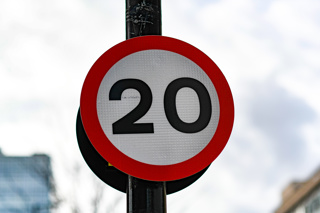The £11 billion private motor insurance market is not working well for motorists, according to the Competition Commission’s (CC), which is now looking at ways to reduce the cost of premiums.
The CC provisionally finds that the complex chain for the settlement of non-fault claims increases the costs of replacement cars and repairs which in turn is passed on to the insurers of at-fault motorists. This results in higher motor insurance premiums for all drivers.
The CC has also found that following an accident too many repairs are not completed to the required standard. Other provisional findings identify problems with the sale of add-on products to consumers and with the contracts between price comparison websites and insurers.
Alasdair Smith, CC deputy chairman and chair of the private motor insurance investigation group, said: “Our provisional view is that many drivers of the UK’s 25 million privately registered cars are footing the bill for unnecessary costs incurred during the claims process following an accident.
“These costs are initially borne by the insurers of at-fault drivers, but they feed through into increased car insurance premiums for all drivers.
“In most cases, the party managing the accident claim, typically a non-fault insurer or intermediary, is not the party liable to pay the costs of the claim.
“There is insufficient incentive for insurers to keep costs down even though they are themselves on the receiving end of the problem.
“We have concerns about the quality of post-accident repairs because too many repairs are substandard.
“We also find that the way add-on insurance products are sold makes it hard for customers to find the best-value products.
“Price comparison websites lead to increased competition to the benefit of motorists, but clauses requiring the same price to be offered for an insurer’s product across the market reduce competition.
“We are now considering a range of possible measures, some of them far-reaching reforms, to ensure that the market better serves the interests of customers.”
In its provisional findings, the CC has found that:
• In many cases following an accident the insurer of the ‘non-fault’ driver (or a claims management company) arranges for a replacement car and repair, while the insurer of the ‘at-fault’ driver foots the bill. This separation of control and liability creates a chain of interactions which result in higher costs for replacement cars and for repairs being passed on to at-fault insurers. The CC estimates the extra premium costs to be between £150 million and £200 million a year.
• Evidence shows that too many accident repairs are not carried out to the required standard.
• Consumers have limited information about ‘add-on’ insurance products while insurers have a point-of-sale advantage. As a result, it is difficult for consumers to identify the best-value offers in the market and add-ons may be priced too high.
• The contracts between price comparison websites and insurers can require that individual insurers’ premiums are not offered more cheaply elsewhere The CC considers that some forms of these so-called ‘most favoured nation’ (MFN) clauses may be necessary to ensure that price comparison websites can continue to provide a beneficial service. However, it believes that ‘wide’ clauses requiring the same price across all price comparison websites reduce competition and lead to higher premiums.
BVRLA chief executive Gerry Keaney said: “The BVRLA welcomes the Competition Commission’s provisional findings that the UK motor insurance sector is not working in the interests of motorists.
“The association has long argued that insurance companies need to take greater control of the costs and downtime associated with managing claims and that this is directly responsible for higher motor insurance premiums.
“We believe that the increasing cost of compulsory motor insurance is one of the biggest threats to the profitability and sustainability of the vehicle rental industry.
“The Commission outlines some very sensible measures that could help address this and we hope that the insurance industry takes notice.”
The CC has not considered personal injury claims, given recent changes such as the banning of referral fees for such claims and other changes proposed by the Ministry of Justice.
The CC has also published a Notice of possible remedies which outlines measures it could introduce or recommend to improve competition and address the issues it has identified, such as:
• Tackling the problems associated with separation of cost control and liability either by making a driver’s own insurer responsible for providing a replacement vehicle or by giving at-fault insurers greater opportunity to take control over managing claims.
• Caps on the costs of providing a replacement vehicle and on repair costs.
• Compulsory audits of repair quality.
• Better and more comprehensive information for customers when comparing add-ons both on price comparison websites and on insurers’ own websites.
• A prohibition on ‘wide’ price-parity (or MFN) clauses on price comparison websites.
• Improving claimants’ understanding of their legal entitlements in the event of an accident.
The CC has gathered evidence from more than 100 parties including multi-party hearings, individual hearings and written submissions. It also conducted two consumer surveys and commissioned a post-accident repair assessment that was conducted by MSXI.





















Login to comment
Comments
No comments have been made yet.